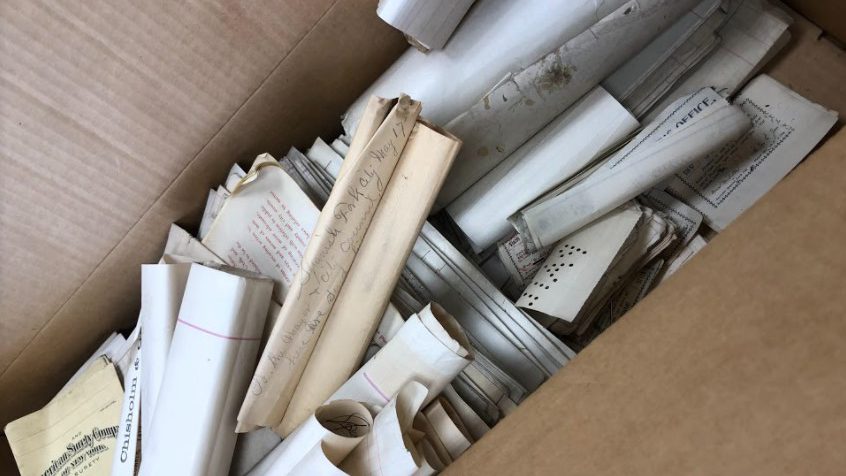
Caroline Pace: The First Women Elected in Spanish Fork City
I first encountered Caroline Pace while sorting through a box of records labeled ‘old stuff.’ Spanish Fork City had transferred the box to the State Archives with many other historical records. However, unlike the other meticulously identified records, this particular box was unruly. The box was full of hundreds of tightly rolled and folded pieces of paper that were difficult to make sense of at first. Nevertheless, I worked to unroll and unfold each of the records in preparation for their final processing into the Archives’ collection. I soon discovered many of the documents were official bonds from the 1880s and 1890s. An official bond was a record signed by a newly elected official as a part of their oath of office. Its purpose was similar to an insurance policy. It provided financial protections for a city should an elected official improperly execute their job. The box contained dozens of official bonds for every elected office in Spanish Fork, including mayors, recorders, and city councilmen.
As I flattened each piece of paper, I quickly got to know many of the names of the men who repeatedly held office in Spanish Fork during the 1880s and 1890s. Recurring men like Rufus P. Snell, Peter Boyack, William Creer, and Benjamin Argyle. As I sorted through the papers, one official bond stood out. As I glanced down at this particular record, I realized it was not quite like the rest. This official bond listed the name of a woman, Caroline Pace. The document stated she was elected in 1897 to the office of City Treasurer, which struck me as a significant year for a woman to be elected to office in Utah. While 1896, the year of Utah’s statehood, marked the first year women were allowed to hold public office, that year’s elections were for state and county offices. The State’s municipal elections occurred the following year, ushering in a new set of “firsts” for Utah women seeking public office.
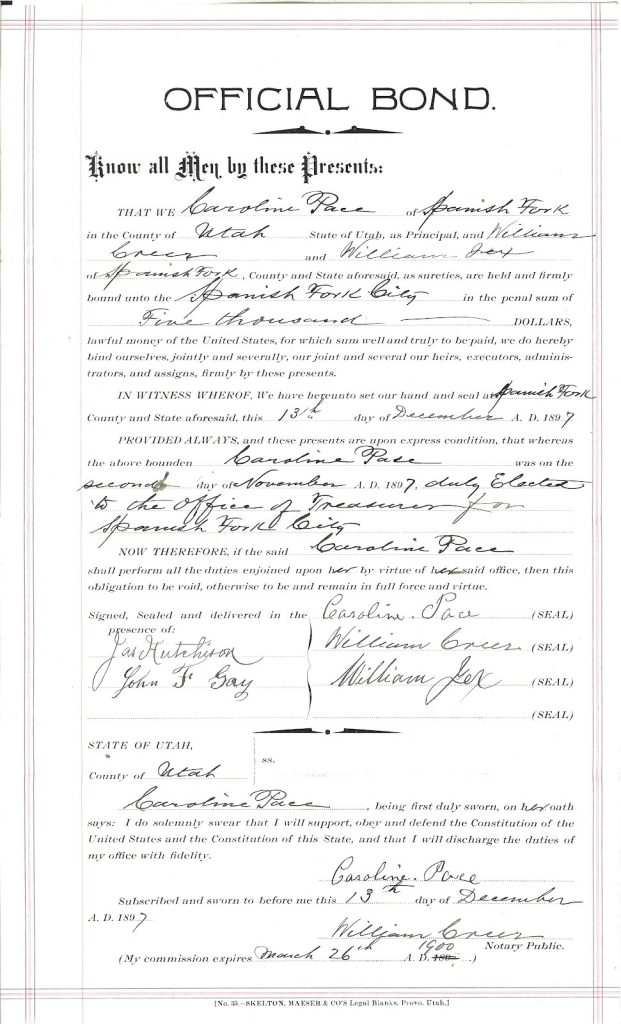
Caroline Pace’s election as treasurer in 1897 would have made her the first woman to hold elected office in the City of Spanish Fork. This notable distinction made me curious to learn more about her. So, like any good Millennial, I started by Googling her name, thinking that someone must have written about the first woman to hold office in Spanish Fork. Sadly my query came back with no good results. So I committed myself to some good, old-fashioned research and began seeking out other primary sources that would help me piece together her story. One record led to another: first a death certificate, then a court case, a few city ledgers, and minutes of a civic club. Each record began to weave a vibrant and exciting story about Caroline Pace’s life.
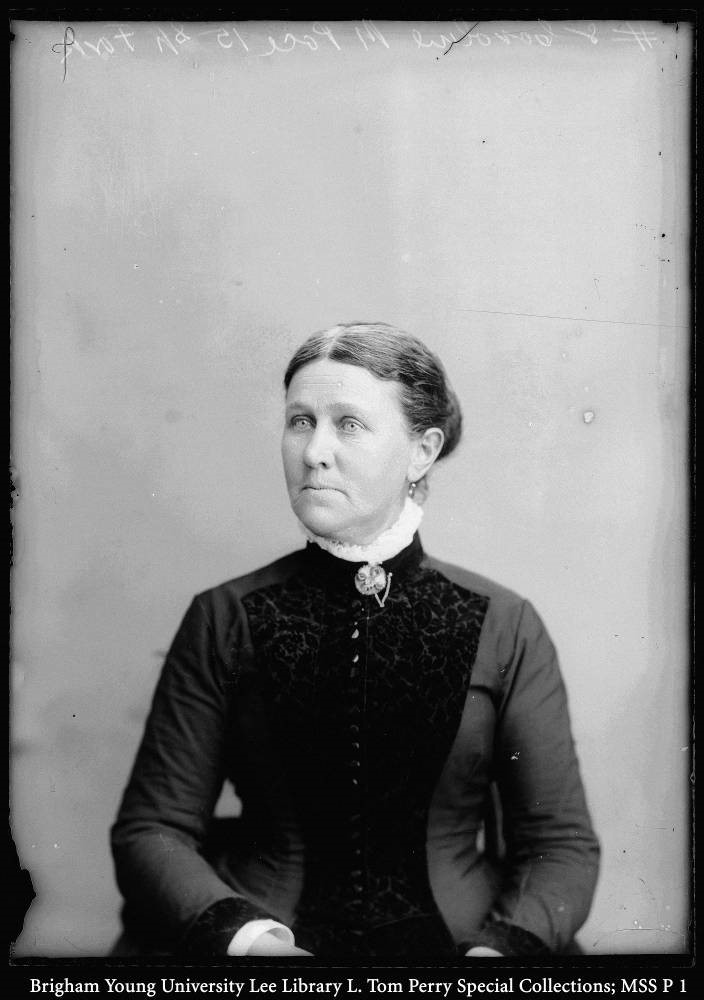
Caroline Mathias was born in Pembrokeshire, Wales, in 1838. Her father, Thomas Mathias, worked as a footman for the Baron of the Slebech estate. Her mother, Elizabeth, cared for the family’s five children. In 1851 Caroline’s mother tragically died while giving birth to her sixth child. Shortly following her mother’s death, Caroline’s father deserted his family, leaving for a job on the country’s railway. Because Caroline and her siblings had no parents left to care for them, the children were split up, and each child was sent to live with a different relative. Caroline was sent to live with her aunt Priscilla Lewis. Priscilla had recently converted to Mormonism and desired to live in Utah. Not long after Caroline’s arrival into her aunt’s home, the family left for the American west. Caroline and her adoptive family arrived in Utah in 1854, eventually moving to the Spanish Fork area. In 1860 Caroline married William F. Pace and settled with him on his Spanish Fork farm. The two were married for 38 years before divorcing in 1894. Caroline and William had no children.
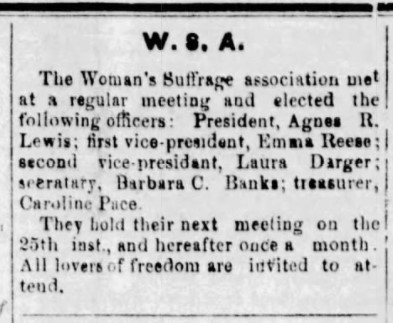
Records from the 1890s show that Caroline Pace was highly active in civic life, serving significant roles in many organizations known for promoting women’s suffrage. Caroline served as the treasurer for her local Women’s Suffrage Association and acted as the secretary of the Woman’s Christian Temperance Union of Spanish Fork. In addition, attendance records for the Spanish Fork Ladies Democratic Society show that she frequently attended club meetings. Her civic service no doubt provided her with ample opportunities to hone her leadership skills, and likely provided her a sense of confidence as she prepared to run for public office.
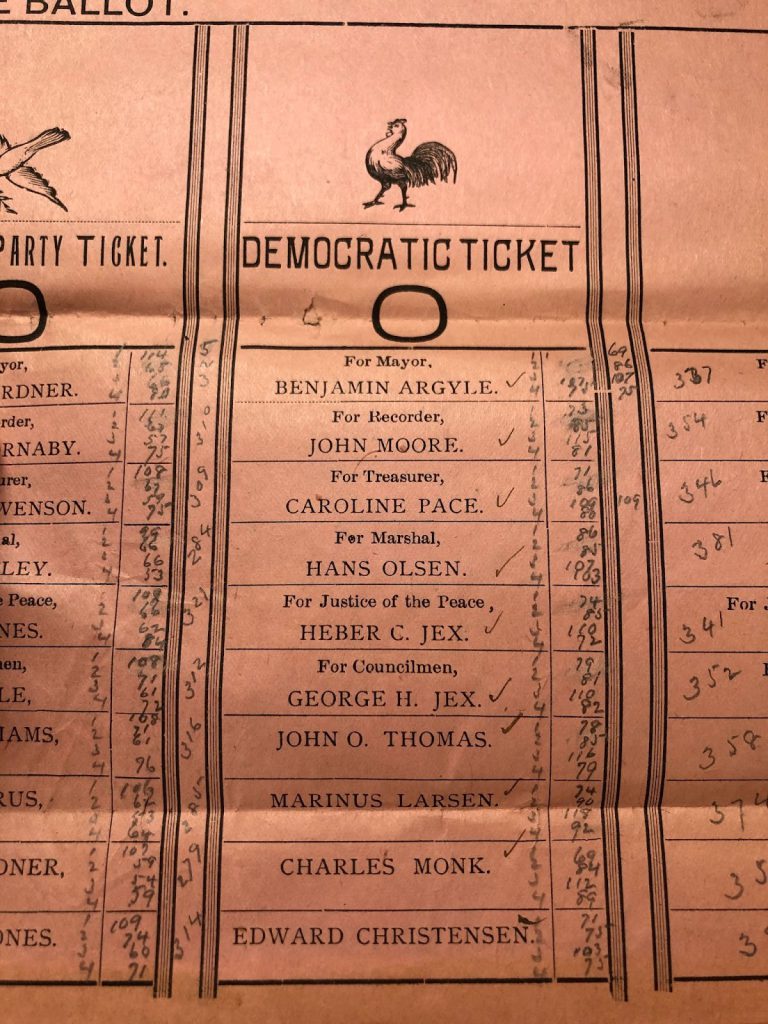
In 1897, Caroline received the Democratic Party’s nomination to run as the treasurer in the Spanish Fork municipal election. She ran against another woman, Priscilla Swenson. Records show that Caroline Pace received 346 votes to Priscilla Swenson’s 309 votes.
As city treasurer, Caroline would have worked to reconcile the city’s accounts, pay city expenses, and oversee the city’s cash reserves. Caroline did not run for reelection at the end of her term in 1901. Records of the Spanish Fork 2nd Ward Relief Society indicate that Caroline’s health began to fail shortly after leaving public office. Caroline Pace died from pneumonia in 1905.
Caroline Pace had no direct descendants, and seemingly no one left to share her accomplishments after she passed away. Luckily, evidence of her service was preserved in records kept throughout Utah’s archives, just awaiting people to piece it all together. It just took one record in a box of old stuff to get the process started.
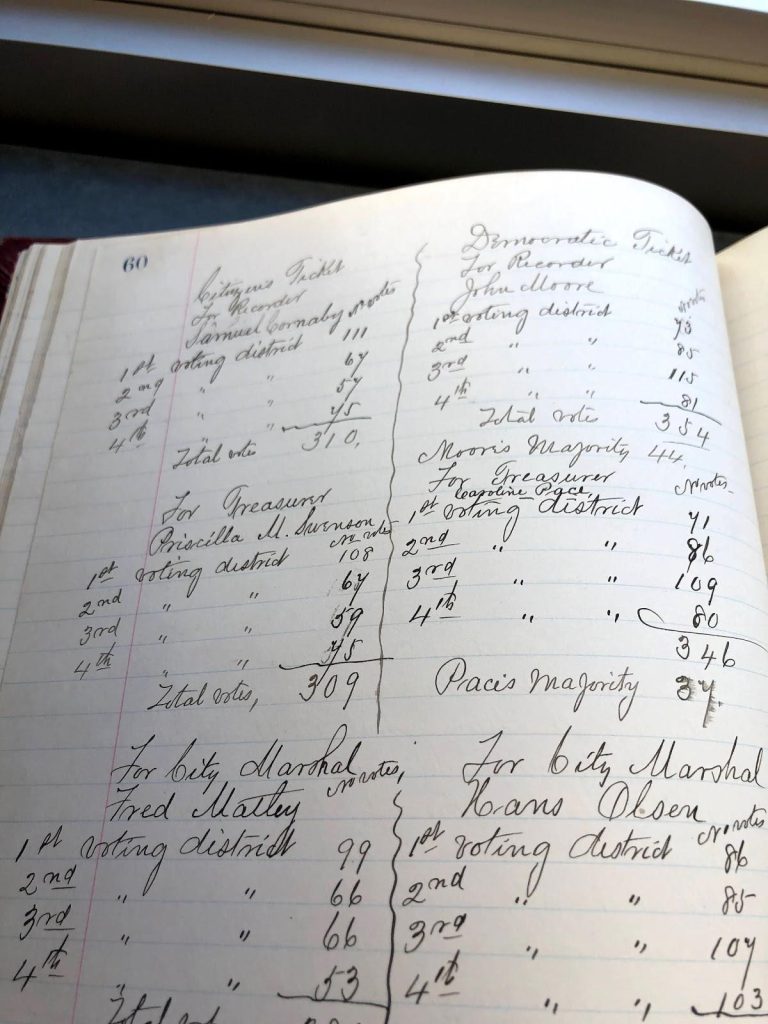
Recent Posts
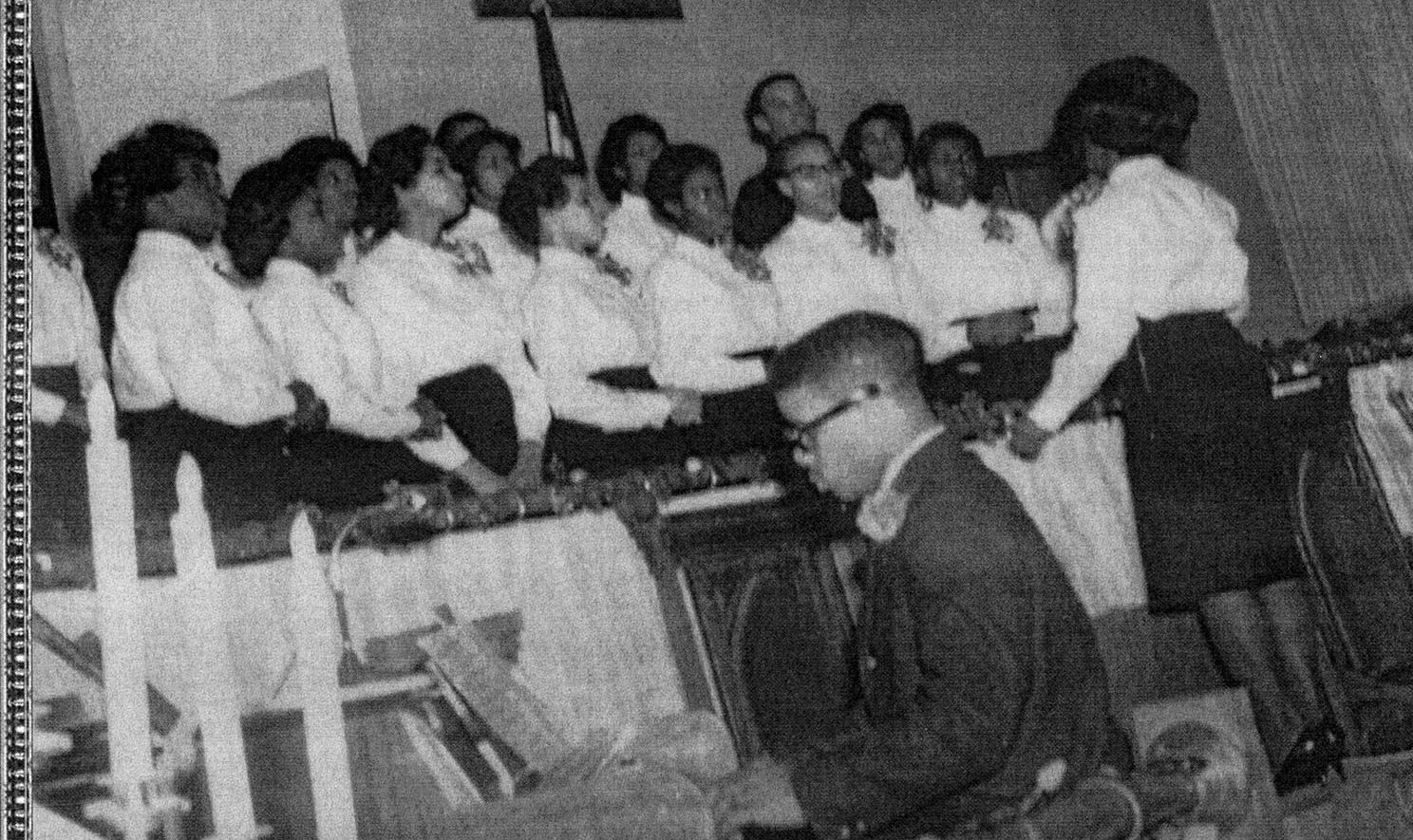
From Pews to Pixels: Weber State’s Stewart Library Digitizes New Zion Baptist Church’s Legacy
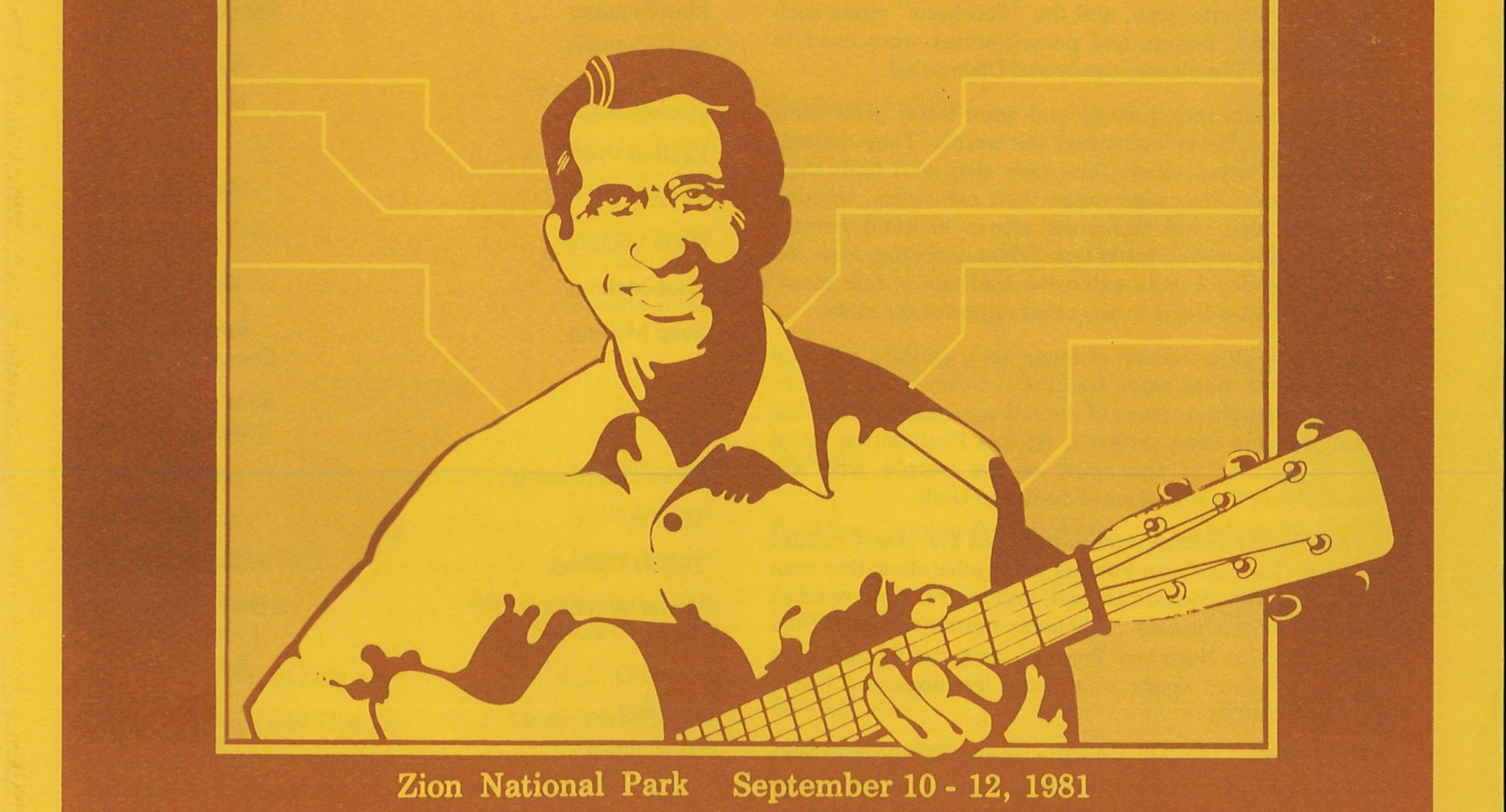
New Finding Aids at the Archives: March 2024
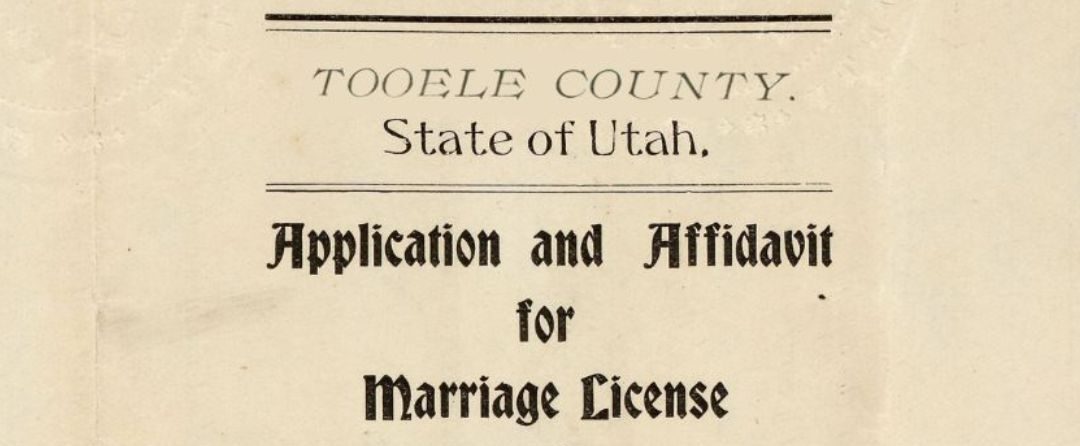
Sealing the Deal: Tooele County Clerk’s Office Unlocks the Vault with Historic Marriage Records
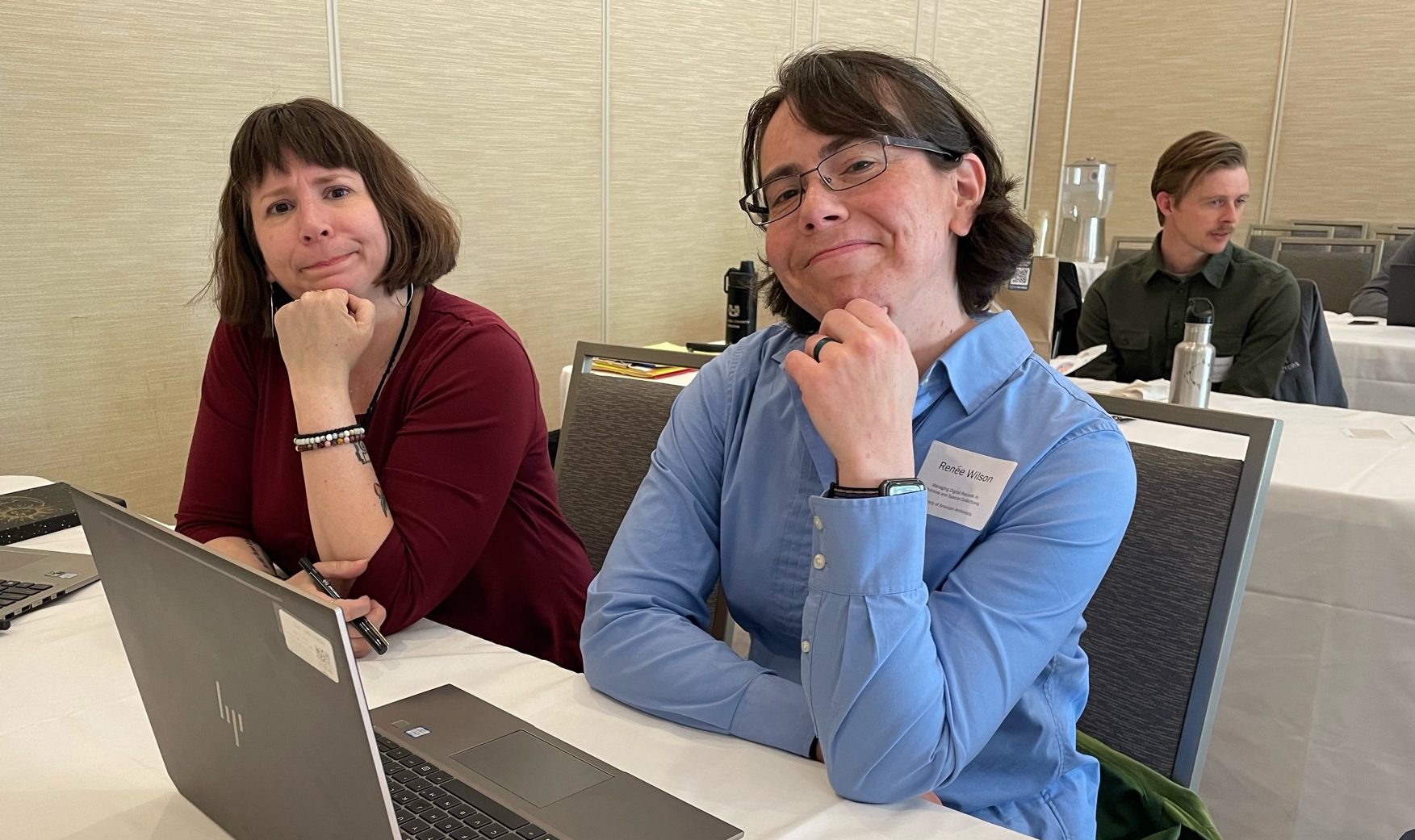
Summer 2024 Internships
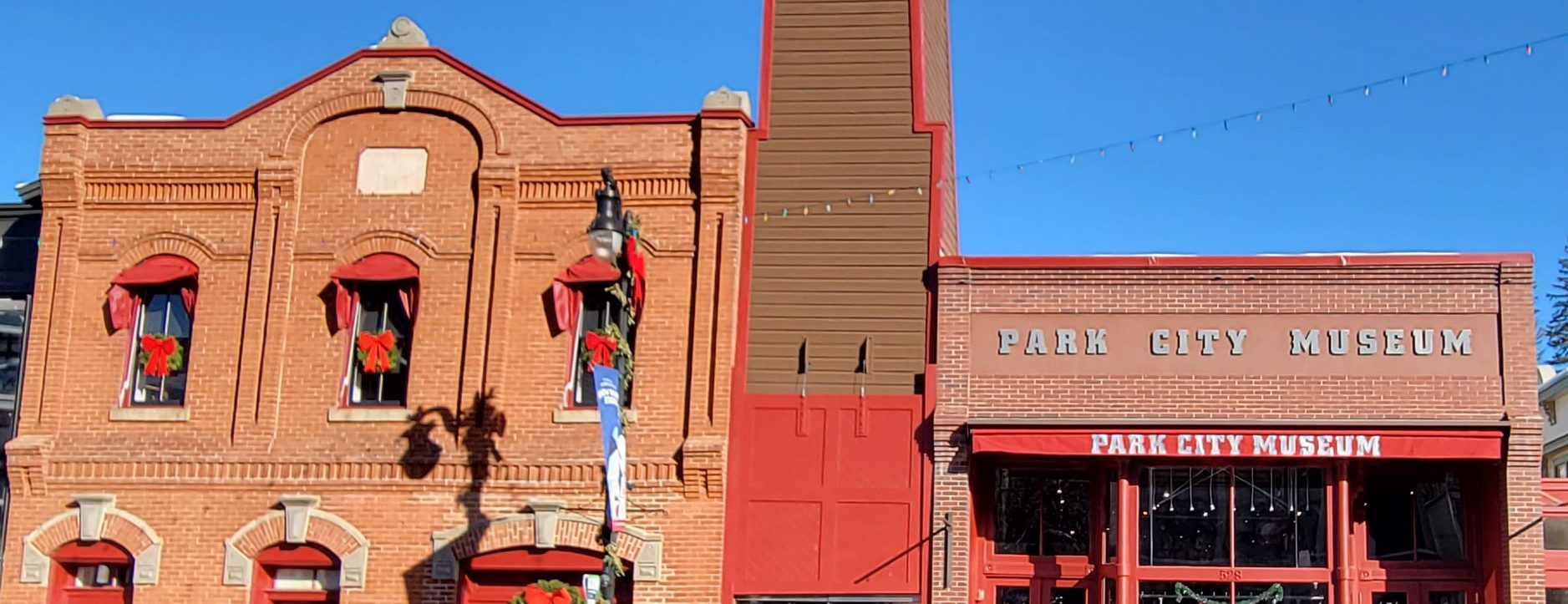
Developing History: Park City Museum’s Snapshot into the Past
Authors
Categories
- Digital Archives/
- Electronic Records/
- Finding Aids/
- General Retention Schedules/
- GRAMA/
- Guidelines/
- History/
- Legislative Updates/
- News and Events/
- Open Government/
- Records Access/
- Records Management/
- Records Officer Spotlights/
- Research/
- Research Guides/
- State Records Committee/
- Training/
- Uncategorized/
- Utah State Historical Records Advisory Board/